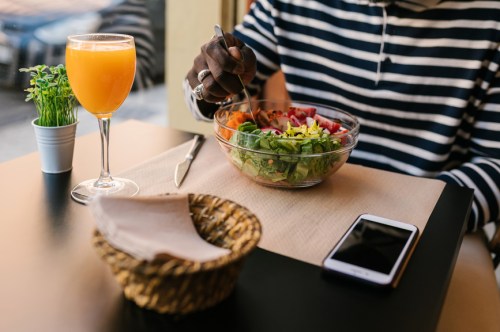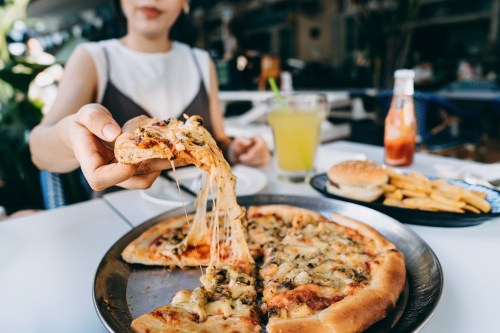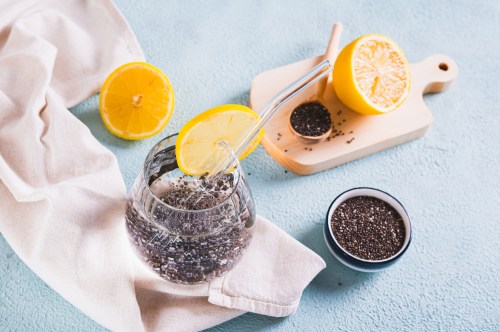Our editors independently select these products. Making a purchase through our links may earn Well+Good a commission
When it comes to supporting the immune system, there’s one nutrient in particular that tends to get all the attention: vitamin C. And yes, vitamin C does play a major role in keeping the body healthy, so keep reaching for the OJ when you feel a cold coming on. But it’s certainly not the only nutrient that’s important.
Experts in This Article
Marylee Marre, APRN, is a family nurse practitioner in New York City with Next Health.
Nayan Patel, PharmD, is a recognized expert in clinical pharmacy services. He is the author of The Glutathione Revolution.
One immunity-supporter that health experts say many don’t know about is glutathione, a specific type of antioxidant that’s important not just for keeping healthy in the short-term, but also in fighting age-related disease. Never heard of it? Consider this your glutathione primer, giving the low-down on everything from what it is to how to make sure you’re getting enough.
Glutathione benefits
No one is perhaps more of an expert on glutathione than Nayan Patel, PharmD. He’s been a recognized glutathione expert for decades and literally wrote a whole book about it, The Glutathione Revolution. Dr. Patel explains that glutathione is a type of antioxidant that’s found in every single cell in the body. “Glutathione is the mother of all antioxidants because it has the ability to rebuild itself and other essential antioxidants, such as vitamin C and E,” Dr. Patel writes in his book.
Marylee Marre, APRN, a nurse practitioner with Next Health, says glutathione also helps with liver detoxification. “It supports the liver by opening up detox pathways to flush out any toxins the body is holding on to,” she says. “This is another way it prevents cells from getting damaged.” Everyone, Marre says, is exposed to environmental toxins every day. Pollution, pesticides, chemicals in foods and cleaning products…there’s no escaping them. Marre explains that without glutathione, these cells can’t protect themselves from the toxins they’re constantly confronted with. Over time, this can lead to chronic health problems, including neurological disorders.
Okay, so that’s what glutathione is. But where exactly does it come from? Dr. Patel explains that glutathione is made from three different types of amino acids: glycine, cysteine, and glutamic acid. Meat, eggs, fish, chickpeas, and dairy are all good sources of this amino acid power trio that helps with glutathione production. Dr. Patel says that no matter what age you are, your body needs glutathione to function properly, but it’s even more important as you age. “After around age 30, the body starts producing less glutathione, so it’s even more important to make sure you’re getting enough,” he says. “When you don’t have enough, the body’s cells can’t fight off sickness and disease as well.”
Both experts also say that another time when it’s important to make sure you’re getting enough glutathione is anytime you feel your immune system needs a boost, like if you’re starting to feel run-down or if you will be traveling. This is when the cells are working overtime to keep the body healthy, so they could use some extra support.
How to make sure you’re getting enough
Dr. Patel says the best way to make sure your cells have enough glutathione is to focus on filling up on foods with the three amino acids that produce it (glycine, cysteine, and glutamic acid). If foods like spinach, avocado, eggs, chicken, legumes, and seeds are a regular part of your diet, your body is likely producing enough glutathione. To his point, you won’t find glutathione on nutrition labels—so instead of obsessing over reaching a specific amount of milligrams per day, it’s best to focus on having a well-rounded diet in general that includes amino acid-rich foods.
Getting enough selenium will help increase the glutathione in your body, too. Selenium is a type of mineral that works as a cofactor to glutathione, which means it increases the rate of a chemical reaction. Foods high in selenium include fish, eggs, meat, cottage cheese, brown rice, and barley. As you can see, many foods that are high in selenium are also high in the amino acids Dr. Patel says are important for glutathione production. Convenient, right?
Both experts reiterate that as we age, it’s important to be extra mindful of glutathione. Same goes for when the body is starting to feel run-down. Dr. Patel says in both cases, someone can either up the amount of amino acid-rich foods they eat, or they can consider a glutathione supplement. If you’re going the supplement route, Dr. Patel believes using it topically, aka applying a spray or tincture right on the skin, works better than a capsule. (Full disclosure: He has his own line of topicals.) “The reason why capsules aren’t very effective is because the body has to do extra work of breaking down the molecules before building it back up,” he says. “With a topical, it gets into the bloodstream faster.”
Marre is a fan of I.V. drips with glutathione, something she says is especially popular for people who are traveling a lot. In all cases, more scientific studies need to be done to truly prove that glutathione supplementation is effective, although studies that exist do show promising results.
As with any nutrient, getting enough through food is the best way to go and, fortunately, there is a whole wide range of ones that can help up your body’s glutathione. So next time you’re feeling run-down or traveling, think beyond that glass of orange juice and consider what foods you can put on your plate to support your immune system. In this sense, caring for your body really comes down to one thing: nourishment.
Oh hi! You look like someone who loves free workouts, discounts for cutting-edge wellness brands, and exclusive Well+Good content. Sign up for Well+, our online community of wellness insiders, and unlock your rewards instantly.
Sign Up for Our Daily Newsletter
Get all the latest in wellness, trends, food, fitness, beauty, and more delivered right to your inbox.
Got it, you've been added to our email list.









